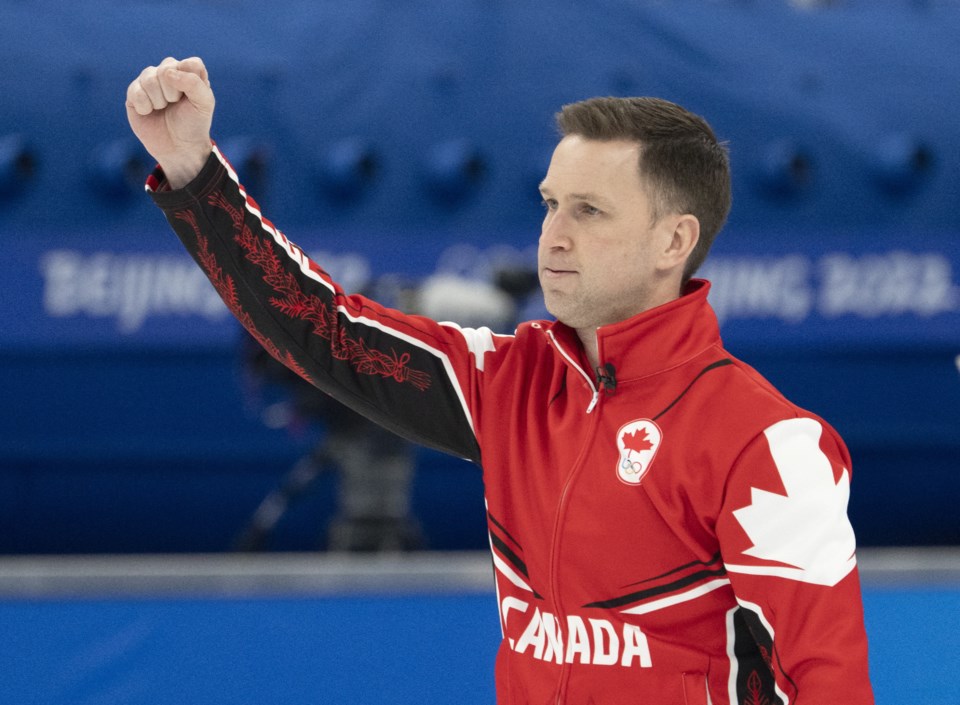BEIJING ŌĆö Similar to gold-or-bust expectations for Canadian hockey teams, the country's curling representatives are under just as much pressure to reach the top of the podium.┬Ā
There's just one problem. Other powerhouse curling countries are just as good if not better than the top Canadian rinks.
The Pyeongchang Games served as a wake-up call. The Beijing Olympics made it clear. sa╣·╝╩┤½├Į is not the curling force it once was.┬Ā
"I don't think a lot of Canadians understand how good the teams are in Europe and around the world now in Asia," said South Korea team coach Peter Gallant.
"They have caught up to sa╣·╝╩┤½├Į."
sa╣·╝╩┤½├Į's John Morris and Kaitlyn Lawes won mixed doubles gold four years ago in the discipline's Olympic debut. The Canadian four-player teams were both shut out of the Olympic medals for the first time.
At the Beijing Games, all three Canadian entries had middling performances.┬Ā
Morris and Rachel Homan missed the playoffs in mixed doubles and Jennifer Jones didn't make the cut in the women's team event.┬Ā
Brad Gushue lost the men's semifinal before salvaging a bronze with a win over the United States.
"We've worked our butts off and I think we've all done ourselves proud and done the country proud," Gushue said. "I know we all expect gold but that shouldn't be the reality."
Sweden and Britain made the final four in all three disciplines at the Ice Cube. Teams from Japan, Switzerland, Italy, the United States and Norway also shone.┬Ā
sa╣·╝╩┤½├Į remains a force on the pebbled ice, there's just more parity with each passing quadrennial as the competition improves.
"We wanted to win gold, too ŌĆö just like everyone else wanted," said sa╣·╝╩┤½├Į third Mark Nichols. "But for people to think that we're going to walk in here and just kind of coast into the playoffs and win a semifinal and get ourselves into the (final), those days are gone.┬Ā
"They're long gone I think."
sa╣·╝╩┤½├Į used to enter world championships or the Olympics as a favourite to win gold. A podium appearance was considered a virtual lock.┬Ā
Now it's a coin flip whether there will be any hardware at all.┬Ā
"In the '90s, sa╣·╝╩┤½├Į was the powerhouse and everyone knew it," said American second Matt Hamilton, who won Olympic gold four years ago.
"I think what happened is everyone kind of took notice and started trying to see what sa╣·╝╩┤½├Į was doing and replicating it and mimicking it."
More and more countries started to invest in top coaches and high performance, with many federations focusing on just one or two teams.┬Ā
sa╣·╝╩┤½├Į has more overall depth but that doesn't necessarily lead to results.
"These guys that are coming over, they're professional curlers," said Nichols. "We're trying to make sure we're balancing our families and our businesses and our jobs and making sure that we're doing all that too.
"There's a fine balance there too. It's so hard to say. I wish I had the answer to know what sa╣·╝╩┤½├Į could do, but I don't."
sa╣·╝╩┤½├Į last reached the top of the team podium in 2014 when Jones ran the table and Brad Jacobs won the men's title.
Curling sa╣·╝╩┤½├Į has its work cut out for it as it looks ahead to the next quadrennial and rebounding for the 2026 Winter Games in Milan, Italy.┬Ā
First up though is trying to get back on the world championship podium after missing out on the medals last season.
It's possible the association could make major changes to its approach. A more likely scenario would be an adjustment to the scheduling of the Olympic trials.┬Ā
The team trials were in late November and the mixed doubles trials were scheduled for late December, much later than other countries at the Games.
"I don't really think you have to reinvent the wheel," Gallant said. "I just think you have to give teams more preparation time."
This report by The Canadian Press was first published Feb. 18, 2022.┬Ā
Follow @GregoryStrongCP on Twitter.
Gregory Strong, The Canadian Press

